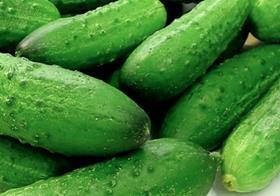
Leading organisations from the Spanish fresh produce sector have called for the dismissal of German and EU officials responsible for “ignoring” European phytosanitary protocols by falsely linking Spanish cucumbers with an E.coli outbreak in Germany.
The associations have also urged the European Union to provide compensation for Spanish producers for the “serious economic damage” caused by the accusations that led to the closure of several markets to Spanish fruits and vegetables.
The Union of Small Farmers (UPA) and the Coordinator of Agricultural Organisations (COAG) have both demanded the dismissal of the German officials that they have accused of “acting irresponsibly” in issuing an unproven food safety alert.
In particular, UPA secretary general Lorenzo Ramos has urged the dismissal of Cornelia Prüfer-Stocks, the Hamburg health official responsible for issuing the alert and its subsequent retraction yesterday (31 May).
They have also called for the removal of those responsible in the European Commission for the subsequent “bad management” of the crisis that resulted in Spanish products being banned from Russia, among other markets.
Benjamín Faulí, head of fruits and vegetables from fellow association Asaja Málaga, has also urged the Commission to immediately make compensation payments to Spanish growers affected by a crisis that was bringing “unprecedented ruin” to the sector.
For its part, national federation Fepex said that it was a priority that the EU and affected markets worked to normalise conditions for Spanish imports and reestablish the confidence of European consumers in Spanish products.
The accusations, the organisation said, had caused “serious economic damage” to the Spanish economic sector, causing the near total paralysis of Spanish fruit and vegetable shipments to the rest of Europe.
For this reason, Fepex said that it was “essential” that urgent crisis management measures were taken by the EU and the Spanish government to enable the exportation of much of the cucumber stock that had accumulated during recent days.
As a first step towards shifting the unsold volumes, officials from Fepex will today (1 June) be holding a meeting with the Spanish vice-president, Alfredo Pérez Rubalcaba, and the country’s minister for rural affairs in Almería.
In addition to the direct economic damage, the federation urged the EU and the authorities in competing nations to take “suitable measures” to repair the damage to the image of Spanish products and recover the confidence of retail buyers and consumers.
Speaking to news agency EFE, Fepex managing director José María Pozancos slammed the “irresponsable” attitude of the German authorities in issuing an unproven food safety alert, which damaged the image of Spanish products in export markets and the credibility of its production and distribution system.
Asaja also criticised the European Commission for using a food safety alert system “through which one country can freely voice its suspicions about another”.






No comments yet